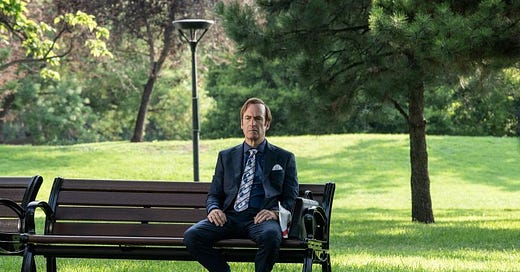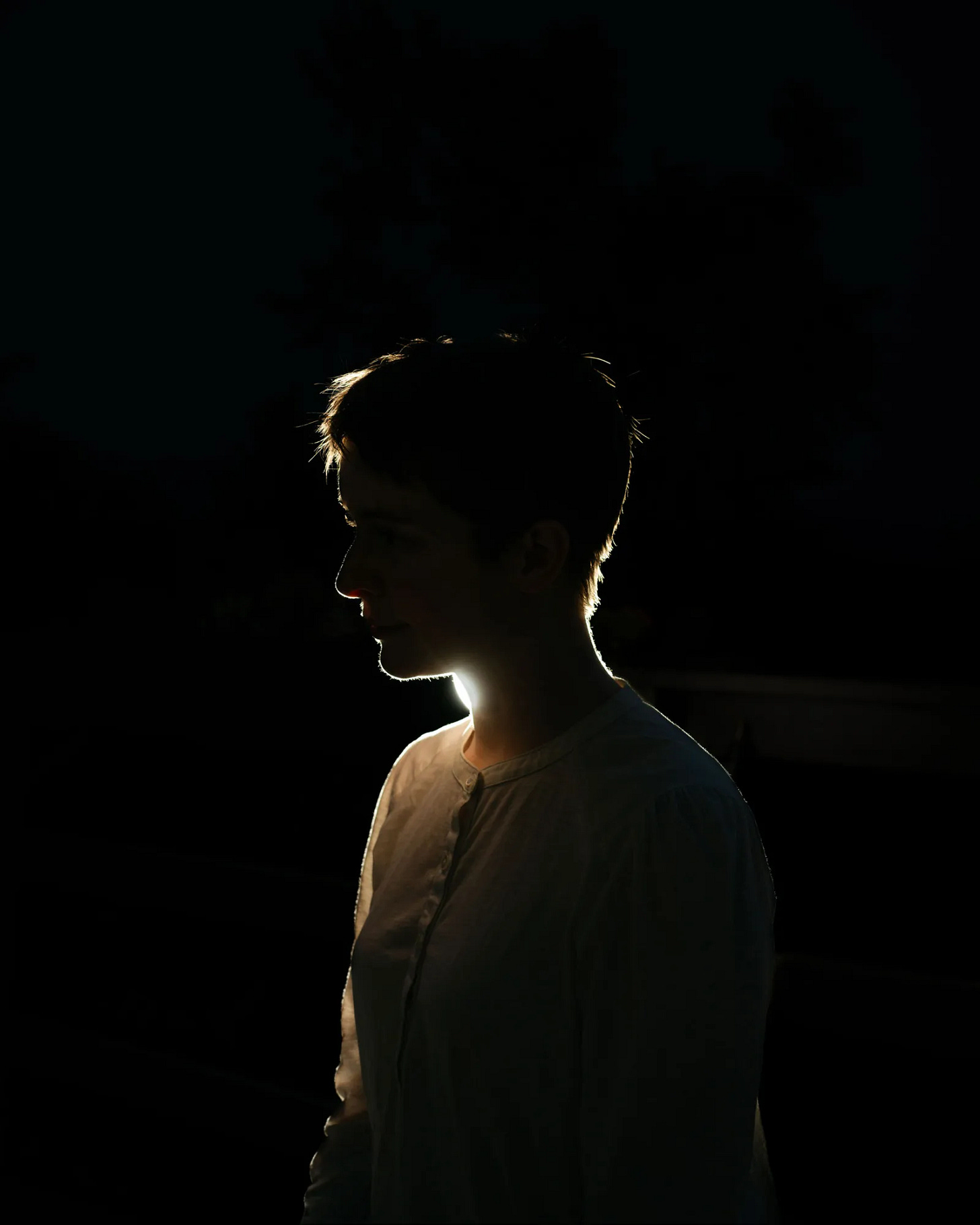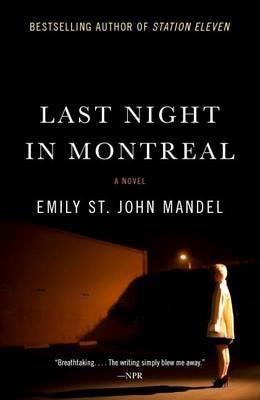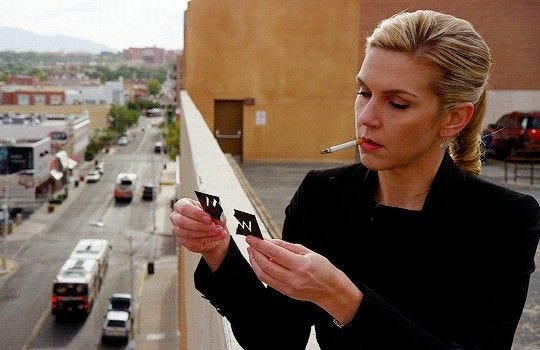Hi.
Hello.
Hope you’re well, hope your family is alive, and hope everyone you currently know is also alive.
Also hope your dog is alive.
Right now I’m in Italy—currently traveling throughout Europe—and there’s a lot I could say about it, but I’m going to skip boring you to death, and get straight to the recommendations.
Before that, two updates—
If you haven’t said hi recently, or you’re new, just reply to this email. I’d love to say hi back!
I lied. I only have one update.
Okay—here’s the (scroll past this to get the book and movie recommendations)—
In the United States, there’s a way of moving and interacting and being in the the world.
It’s mimetic, meaning—
The more you live in the U.S., the more you adopt the attitudes, the traits, and the ideas of the people around you.
I think many of us have been living in the United States for a long time. We (and I include myself here) can get out of touch with not only the rest of the world, but also by the fact that we are prisoners of our own lifestyle, of the lifestyles handed down to us, of the norms and cultural ideas that we live and execute, every single day.
The truth is, when you travel, or you talk to someone that isn’t from the United States, you realize that all of this is just made up. Holidays were made up. Having dinner at a specific time was made up. The sense that we should do x during y was made up, the idea that we should work a certain number of hours was made up, the idea that we should have a Turkey on Thanksgiving was made up, the idea that we should wake up at a certain time was made up, and the weekend—literally the calendar system—was made up by humans from the distant past, all etched in a history and a place and a time and a context that was different from our own.
We are living in made up worlds—just like the fiction we read. These worlds are a web of ideas and norms and ways of living that were made up by (as Steve Jobs liked to say) authors “no smarter” than me and you.
The corollary to this idea is that you can explode your life. You can—quite literally—do whatever the fuck you want to do with it. If you want to read a newspaper everyday in the morning for an hour—you want to treat Monday as a weekend—you want to quit your job and shoot for something else—
You can do anything. You’ll be constrained by your own psychology and the outside world, of course. It’s hard. But traveling teaches you that it’s not as hard you think.
And of course, like all fictions, they’re gripping and they swallow you—but eventually, we let the books go, and we get back to re-authoring our real lives.
Last Night in Montreal, by Emily St. John Mandel
One of the best—if not the best—novel I’ve ever read.
Emily St. John Mandel:
“I moved from Toronto to New York City to Montreal to New York City in the space of 12 months.
And it occurred to me somewhere in there it would actually be possible to continue living that way forever.
That one could live from city to city to city—and live that way permanently—and perhaps even never settle down.”
The fact that people haven’t heard of Last Night in Montreal is fucking astounding to me—because it’s an insane novel—and it gave me the best feeling when you read a book—sustained awe, moments after reading the book.
It’s magisterial.
There was a random review I read that hit the nail on the head, and it came from a random bookseller I do not know (Michael Fraser, at Joseph Beth Bookseller):
“I realized that this novel is why I became a bookseller and why after almost 22 years I remain one. To come across a gem like this makes slogging through many many other books we read, ones that may be goodish, ordinary or even bad, all worthwhile.”
It’s so good—and to start, here’s what works so well:
Mandel bridges the line between literary fiction and genre fiction. To me, both camps suffer from positives and negatives at the extreme.
Literary fiction has an elegance—and a psychological and humanistic depth—that genre fiction often doesn’t.
But it’s cardinal sin is that a lot of literary fiction can be boring.
Genre fiction is the opposite—it can be taut, thrilling, fun. The shit grips you in the way the best television shows do.
But there can be a stunning lack of depth, at times.
These are generalizations, but Mandel takes the positives of both (the depth, the humanity, the subtleness of literary fiction, and the compulsive I-need-to-keep-reading quality of genre fiction) and smashes them together.
Emily Crowe said her book was “intense and subtle in equal measure”—I completely agree.
There’s a subtlety—probably emanating from Mandel’s natural sensitivity of the world around her—that is just beautiful. In particular, there’s a description of a train and a description of a shower that I remember just due to the exactitude of the description itself.
To top this off—the narrative is about a woman who was abducted as a child, and yet the book is not marred in a kind of depressing, suffocating weight.
Mandel on her later book (which you’ve heard about) Station Eleven (from Esquire):
“When I was writing Station Eleven, my philosophy was, “If you're going to kill off 99% of the population, you've got to have the lightest possible touch.” It can't just be horror, because that's The Road—which was a great book, but I didn't want to write that book. There's got to be joy. There has to be lightness and art and the things that make life worth living. Maybe even more to the point, the things that make you want to keep reading.
[…]
I don't like books that are just one thing. I think it's more interesting if something is both devastating and hopeful.”
Last Night in Montreal has a light touch—it feels light and dark in equal measure, and it emanates with both the realism of life and the beauty of art.
Lastly—the narrative does something which is very similar to a Christopher Nolan movie. It weaves in and out of time—but (as Mandel relates) the most dramatic parts of the narrative start to pop off, like firecrackers, near the end of the book in a kind of crashing, sudden, motion.
Imagine there’s:
Timeline #1
Timeline #2
Timeline #3
Timeline #4
And for all four of those stories (all tightly woven together, all intricately linked to each other), we are flashing back and forth from past to present—in an almost dreamy, surreal way—and all of those timelines start to march toward the point of highest drama right near the climax.
What this means is that from the experiential point of the view of the reader, the book fucking smashes it at the end, and it is a resolute joy to read.
You’ll love it. Your parents will love it (I have no idea).
Just read it. It is—I promise you—worth your time. More people should’ve talked about this book.
Better Call Saul, created by Vince Gilligan and Peter Gould
A television show which—look—you just have to watch. I’m sorry.
Note: this reccomendation is just for seasons one through five.
Most shows are good.
Good in the sense that: you want to keep watching.
Better Call Saul is virtuosic and it peels like a novel.
So many novels do what television and movies can't—you get to spend deep time* with the characters.
You get to know them as profoundly as if they were people you were knowing in real life.
But Better Call Saul—there's something magical going on in the writer's room—because the writing, the cinematography, everything all collapses into a television show that cares about characters and psychology first.
An exciting plot—where you do not care about the characters—feels razor thin (there's nothing there, you aren't moved) and yet, here, the writing of the show fills these characters out so completely—they are so fully realized—that this shit feels real to you.
In fact, one of the craziest things about the show is that—if you've watched Breaking Bad—you know Saul (the protagonist). He's the "sleezeball" character, comic relief (to a point)—and the running joke among the show runners during production was "what if we made a spin-off show about Saul?"
But the show didn’t treat Saul like the flat character he could’ve been. When you watch these characters, they feel deeply real.
And the truth is, they aren't real. They're not suppose to be real. They're fictions.
But the best shows, the best novels, and the best characters hum with an intensity of reality, of real weight, of real stakes. The show’s organic plot—things happen, events collpase on each other, complications pile up, you don’t know what’s going to happen next—make it an incredible slow-burn.
Watching the first five seasons of Better Call Saul has been one of the best pieces of art I've experienced in my lifetime. If you have time—and, honestly, even if you don't—you should start Season One now.
*deep time is something I made up, but it’s time that you spend with someone that deepens your relationship with them. You can spend hundrends of hours with someone and stay on the surface. Or, you can spend just an hour with someone, and feel like you’re emotionally and spiritually and psychologically intimate with them. Deep time.
That’s all for now folks!
Again—if you liked it, I’d love to hear from you (just reply to this email).
And of course, the best compliment you can pay a writer is recommending it to someone else. If you found this useful, sharing helps!
Thanks for reading—until next time,
Mohnish












Sold! I'm so going to read the book and watch the show now. l love how you share these recommendations, so full of life and personality. And the phrase "deep time"! Can I borrow it, with attribution of course? It's exactly what I experienced in the essays in Letter to a Stranger, edited by Colleen Kinder.
Thanks for writing, Mohnish!